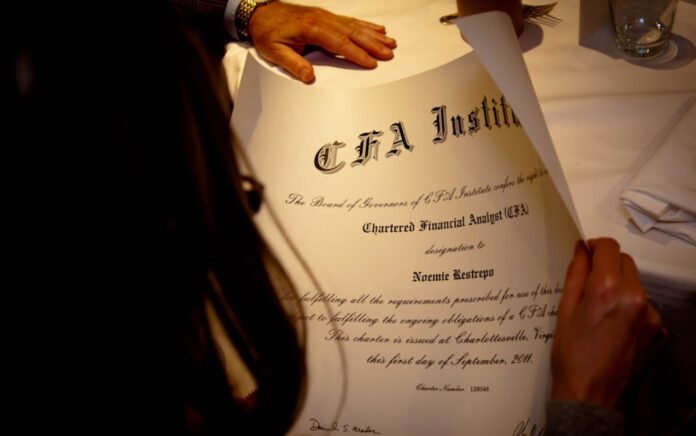
The career of an M&A expert is very lucrative and exciting, which is one of the reasons it is so appealing to graduates. However, it is extremely difficult to break into this industry. Why? Well, an applicant needs to meet the required qualification, but they also need to possess certain sets of skills.
Due to the fact that companies keep expanding, the demand for M&A professionals is almost certainly going to increase. Still, in order to obtain this job position and advance, you need to be at the top of your game. In this article, we will discuss all the requirements you need to meet to achieve this goal.
1. Have a Bachelor’s degree

First things first, you need a college education to even begin thinking about this line of work. Several programs are appropriate here, so if you have a degree in accounting, economics, business, or finance, you have taken the first step. If you are about to enroll and want to become an M&A expert, you should choose finance as your major. This program studies the subjects of financial markets, business statistics, managerial finances, accounting, investments, and financial information technology. A bachelor’s degree will enable you to get an entry-level position, but everyone wants to climb the corporate ladder. This is why you need to continue your education and earn a Master’s degree in Business Administration.
In addition, it is always a great idea to get some hands-on experience. Many students apply for internships with different financial institutions. In most cases, it is actually necessary to gain this experience while completing your studies, and if you manage to make a great impression, the company may offer you a permanent position after your graduate.
2. Get a license
Once you complete your education, you need to obtain a license. The law requires you to be registered with the Financial Industry Regulatory Authority or FINRA. Yes, this process also requires you to pass some exams, and these differ based on the professional classifications. Since we are talking about the M&A experts, you will have to take the Series 79 licensing exams and be classified as a limited representative. This exam consists of 175 multiple-choice questions and includes topics such as data collection, mergers and acquisitions, business conduct, underwriting, principal trading markets, Securities and Exchange Commission rules, and due diligence activities. Also, keep in mind that you need to be sponsored by a company or individual registered with FIRNA, which is another reason internships are vital.
3. Obtain certification

When it comes to these, you are not required to get certified, but still, many professionals choose to go through this process to demonstrate their skills and experience. Many people choose to go with the Chartered Financial Analyst certification, which they can get from the CFA Institute. If you are interested in this one, you need to have a bachelor’s degree and at least four years of experience. Obviously, you need to take courses and pass exams to earn this certificate. These are divided into three areas asset valuation, investment tools, and portfolio management. You will take the courses one by one, and you can move to the next one only by completing and passing the previous one.
On the other hand, you can opt for another certification. Some of these include International Mergers & Acquisitions Experts, Certified Post Merger Integration Expert, Legal Mergers & Acquisitions Expert, and so on. These are only some of the IMMA 2024 courses you apply for and get a chance to learn for the IMMA Mergers and Acquisitions professionals to get certified – for more information visit Imaa-institute.org.
4. Maintain your certification and licensure
Now that you have obtained both of these, you can start building your career in this industry. However, you need to renew your license. If you just got this document, you need to complete the CE program during the first two years. Later, you will have to maintain it by completing the continuing education program every three years. The same rule also applies if you go with the CFA certification.
This industry is constantly changing, and the only way to stay on top of everything is to continue boosting your knowledge. Considering this, the previously mentioned requirements are not that surprising.
How to get a job?

Now that we have provided you with a step-by-step guide on how to become an M&A expert, we will discuss some tips you should use to get a job in this line of work. Firstly, your grades need to be better than excellent. Keep in mind that banks and companies get thousands of applications each year. The best way to stand out is to let your academic success speak for you. It is why it is crucial to start planning your career in this industry while in college.
Next, the sooner you adopt the habit of reading about finances and market trends, the better. As already mentioned several times, the industry is constantly developing, and you need to be aware of all the changes that occur. You cannot do your job if you are not aware of these, and let’s be honest, no one is going to hire you if you don’t know what is going on. Also, this is the best way to demonstrate your passion and interests to future employers.
Moreover, get an internship. Without a doubt, the best way to secure a job is to complete an internship program. Do not miss out on this chance under any circumstances. Not only do you need to have the experience to be eligible to obtain a license, but you may also get a job offer within a company if you prove you are a great fit and a future expert.
Conclusion
To sum up, these are only some essential things you need to know about building your career and becoming an M&A expert. As you can see, you need to invest a significant amount of time and effort into achieving your goal. Due to this reason, it is always better to start planning your career path early on and choose a college education accordingly.











